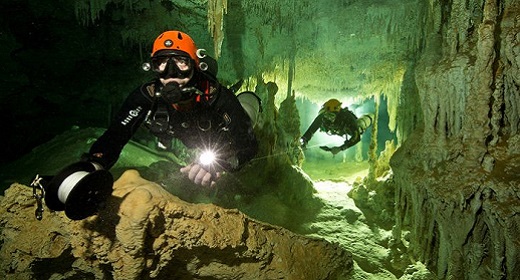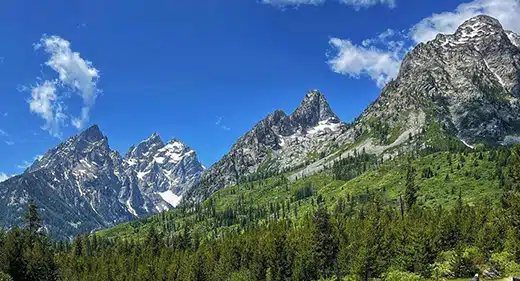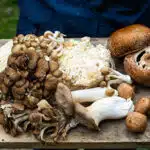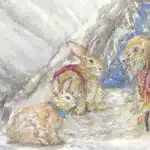by Bill: Shamanism has been practiced for millenia in the Americas, Europe, Asia, Africa, and Australia…
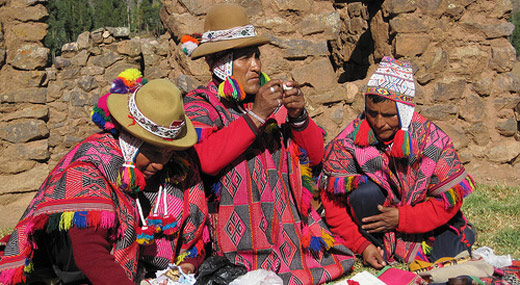
Research by Michael Harner and others has shown great similarity in the practices and traditions between them all.
In this post we’ll give a little history on shamanism and then outline some different points of what makes a person a shaman.
What Is Shamanism?
First, Michael Harner gives us a little history of shamanism and on the early shamans:
In the languages of the old ones wisdom meant one word. In Tungus it was Saman, in Tocharian it was Samane, in Prakrit it was Samana and in Sanskrit it was Sramanas.
The word Shaman is a cognate to the word Saman, first used by a Tungus-speaking people, the Evenk, in Siberia. The role of the Shaman in his/her society was/is a vital one. They talked to spirits and animals and saw visions of the future. Born from the reverence early humanity had for their surroundings and the eternal wonderment of the spirit world, Shamanism held a distinction as being different than a magician or healer in early society. For the Shaman would walk the pathway to the spirit world routinely. Through altered states of consciousness induced with or without the aid of a catalyst, the Shaman would converse with the spirits. As a faith, Shamanism fits into many types of belief systems, due to the fact that is independent of dogmatic, institutionalized religion.
Shamanism is one of the oldest divinatory practices in the world to promote healing and spiritual wellness. By archaeological and anthropological evidence the practice has existed for some 20,000 to 30,000 years.Evidence of Shamanism has been found globally in isolated regions of the Americas, Asia, Africa, regions of Europe and Australia.
Leo Rutherford looks at the shamanic path:
Today shamanism survives on all inhabited continents in less ‘developed’ regions in spite of the relentless onslaught of western scientific materialism, the treatment of the Earth and nature as something to be dominated and exploited, and dogmatic male dominated religion.
Shamanism is not a religion, it is not about beliefs, in fact it is not a belief system at all. It is a path or paths to knowledge, which is gained through experience of many facets of life, through rituals, ceremonies, prayer and meditation, trials and tests. Knowledge is something that works, that stands up to test, and to the test of time, that is known from inside, unlike belief which is something taken on from outside, from others. Wars are fought over beliefs, never over knowledge.
What Does A Shaman Do?
With the many varities of shamanic cultures around the world, one way to help determine what a shaman is, is to look at the commonalities in how they work across cultures and what roles they have in their communities.
Below, some modern day experts give their opinions and explanations of what they see as a few of the key aspects of being a shaman. There are many aspects that we could write about here, but we are going to keep it to 3 high level pieces.
Answers The Call
ShamansHearth has a great post that looks at the callings of traditional shamans and the idea of what makes a shaman a shaman:
In traditional societies, a Shaman must be called, and must work within their calling to remain safe and well grounded. There is no more or less valuable shamanic practice. Many great shamans I know are called chefs, making food taste better than the ingredients allow by adding intent and love, both very real, physical things in the shamanic way of thinking.
So what makes a Shaman a Shaman? A Shaman follows a calling to investigate, experience and learn about the Shamanic realities that over-lie and under-lay our world. A Shaman is defined by their manner, their understanding and the recognition of their shamanic peers and community. A Shaman does not have need of a piece of paper to legitimise something that is their birth-right and their destiny, nor a licence to practice or anything else. You just have to walk lightly in this spiritually magnificent world of nature to experience the shamanic. Listen for the call to your place in the world. When you follow your calling, you have fulfilment, and there is nothing, nothing more worthy than that.
Acts As A Bridge To The Spirit World
Sandra Ingerman says that spirit connection is a key trait:
A shaman is a man or woman who interacts directly with spirits to address the spiritual aspects of illness, perform soul retrievals, divine information, help the spirits of deceased people cross over, and perform a variety of ceremonies for the community. Shamans have taken on many roles in tribal communities. They have acted as healers, doctors, priests, psychotherapists, mystics, and storytellers. Shamans look at the spiritual form of illness which might manifest on an emotional or physical level.
Steve Beyer expands on the idea of spirit connection and outlines several other key traits including the gift of the visionary:
The shaman has a special relationship with the spirits, different from that of people who are not shamans. Relationships with these other-than-human persons, like relationships with human persons, are often subject to renegotiation, and may involve different and shifting amounts of power on either side. Relationships with different spirits may involve different degrees of trust, persuasion, control, or subordination. These other-than-human persons, like human persons, may be helpful, harmful, callous, malicious, indifferent, or tricky, and they may unilaterally terminate their relationship with the shaman. Such relationships with the spirit world may be considered demanding, dangerous, and exhausting.
The shaman sees things that people who are not shamans cannot. The shaman may be able to find lost objects, know where game is plentiful, discern who has cast a curse, diagnose the location or cause of an illness, persuade the animals to give themselves for food, or heal the sick by retrieving a lost soul or by removing intrusive objects from the body. The shaman may perform one, a few, or many of these functions.
Heals The Soul – Both For Individuals And Communities
Shamans work at the soul level for individuals, the community, and all spirits they encounter along the way. Among their most important tools are rituals and ceremonies that have been passed down from the ancestors. Viola Woolcot outlines this role of the healer:
The Shamans primary task is to keep the people as a whole as well as assisting any individual who suffers with loss of Spirit or Soul. Shamans have sacred healing powers as well as ceremonial responsibilities. They use a repertoire of different healing methods like energy healing, body work, crystals, dance and sounds as well as shamanic medicines, removing damaging energies which are believed to cause illnesses and despair. Shamans believe that the main causes of illness is separation from the Source.
The Shaman is the doctor of the Soul for both the community as well as for the individual, as he is the middle man for the person in need as he has the power (energy) to be the communicator between the spirit world and the modern day world. He retrieves lost or stolen Souls as well as their fragments. To the ill and dying he restores health, interprets dreams as well as messages from spirit. Ceremonies are carried out to mark rites of passage or other meaningful milestones in someone’s life. At births and death he assists, helping in the arrival as well as the departure of Souls to and also from this world.
Shamans do not believe they have any special powers. They just work with spirit to help others heal. Famous Lakota Medicine Man Black Elk, though not considered a shaman by many, walked a smilar path and had this to say about the his role as a healer working with spirit:
“Of course it was not I who cured. It was the power from the outer world, and the visions and ceremonies had only made me like a hole through which the power could come to the two-legged. If I thought that I was doing it myself, the hole would close up and no power could come through.”
Great humility is a key aspect of the healer.
Rituals and Ceremonies
No discussion of shamanism would be complete without mentioning the importance of rituals and ceremonies. There are a number of rituals that are common to shamanic practice around the world and which are a core part of shamanic practice. These include fire ceremonies, drumming ceremonies, healing rituals, and ceremonies to honor the earth. They can be performed by an individual shaman or by a group of members of the shamanic community.
The Shamans Of Today
As Leo Rutherford mentioned above, Shamanism is still practiced all over the world. There are many shamans in indigenous cultures (indigenous shamans) that still practice their craft in ways very close to those of their ancestors. Some of them are willing to share their teachings with people from other cultures and hope that it will help make the world a better place. The “students” of those indigenous shamans then translate what they learned to their own culture. These students are are often called neo-shamans and there are variants of this throughout the world, many of them mixing New Age ideas with the principles of the ancient ways.
There is also the idea of “core shamanism” which Michael Harner’s defined through his research. Core shamanism defines commonalities among shamanic cultures and teaches students those skills (like drumming, journeying, fire ceremonies…).
Some feel that the only real shamans in the world are those that come from a long linneage of shamanic culture. There is no way to “learn” to be a shaman, it is in your blood. They may be right, but then who taught the first shamans their practices? Their rituals? Their beliefs? Shamanism has changed in many ways across many cultures over the years. Because of that it is hard to say that there is any single snapshot in time where shamanism was more authentic than others. Our time is now.







